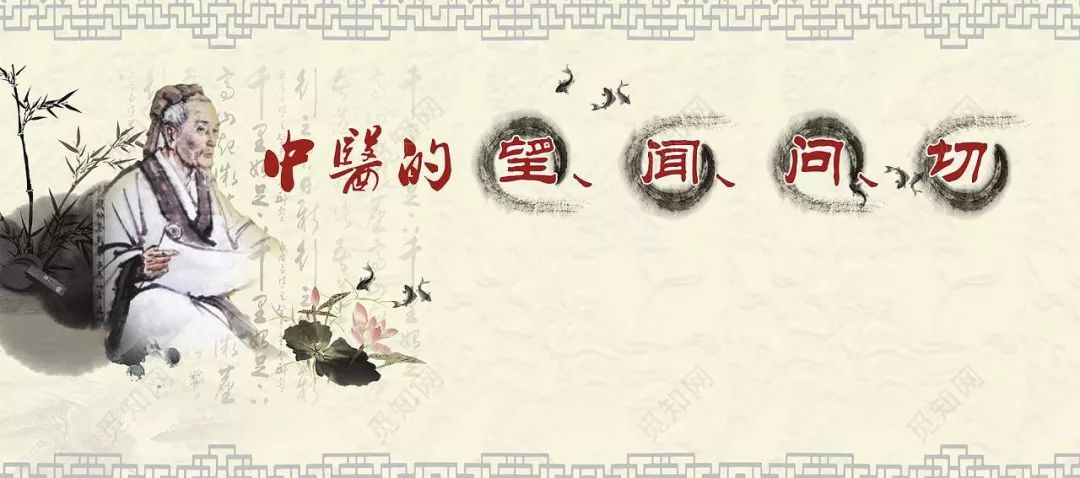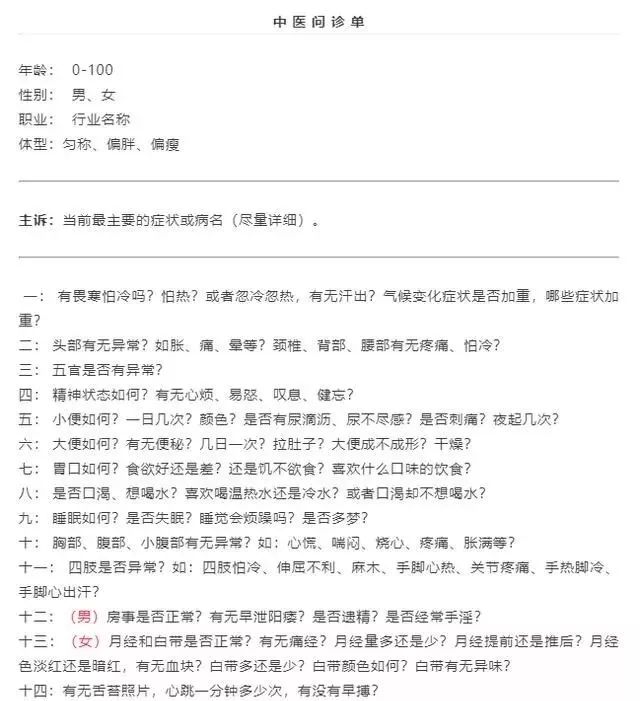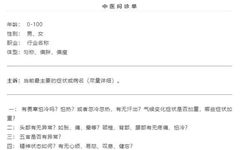
Observation (Wang Zhen)
Observation involves examining the patient’s eyes, tongue, mouth, nose, and ears. Luo Wendi explains: “The Ling Shu states, ‘By observing the external manifestations, one can understand the internal organs and thus know the disease.’ Ancient practitioners summarized through extensive practice that there is a close relationship between the five senses and the internal organs: the liver governs the eyes, the heart governs the tongue, the spleen governs the mouth, the lungs govern the nose, and the kidneys govern the ears. Among the five senses, the observation of the tongue coating is particularly important, as it can determine conditions such as yin-yang balance, damp-heat, and excess fire, which are crucial for diagnosing conditions like hemorrhoids.”
Observation Verse
In spring, summer, autumn, and winter, the colors green, red, white, black, and yellow are appropriate.
The left corresponds to the liver, the right to the lungs; the heart is linked to the forehead, the kidneys to the jaw, and the nose governs the spleen.
The five organs correspond to the five orifices, revealing auspicious and inauspicious signs at the right time.
The liver governs the eyes, the heart the tongue, the lungs the nose, the kidneys the ears, and the spleen the mouth.
Colors that are dull or bright indicate new or old conditions; a faint yellow hue suggests a recovery period.
Traditional Chinese Medicine Observation Diagnostic Verse
Kidney deficiency shows dark circles under the eyes; lung heat presents as a red tip; liver excess manifests as red eyes; cold-induced wheezing shows dark cheeks;
Wind causes blue eyes; phlegm-dampness results in yellow eyes; excessive phlegm leads to swollen eyes; cold in the stomach shows blue lips;
Kidney failure shows dark circles; dampness leads to a yellow complexion; liver heat causes dry skin; blood heat results in red eyes and cheeks;
Mixed colors indicate dark eyes; foot injuries show a dark moon; blood loss leads to a dark complexion; incontinence shows a yellow-green face;
Qi deficiency presents as a yellow, swollen face; excessive sweating shows blue lips; pain leads to furrowed brows; heat causes a dark forehead;
A dry forehead indicates a need for hydration; white lips should avoid cold; red cheeks indicate a need to clear liver and lungs; excessive fat indicates a need to eliminate phlegm;
Thin individuals have excessive liver fire; weakness indicates qi deficiency; a choking sensation requires dietary adjustments; a dry mouth indicates stomach cold;
Diarrhea shows a yellow-white face; abdominal pain presents with white lips; a dark-blue face indicates potential poisoning; bulging eyes indicate mania;
Symptoms resembling tuberculosis indicate a need for treatment; a dry mouth suggests Gu Zheng (bone steaming); a ghostly pale face indicates a lack of appetite;
Poisoning shows white in the mouth; red blood indicates a need for caution; a yellow face resembles dyed paper; intestinal wind indicates blood loss;
Deep-set eyes indicate eye diseases; a crooked nose suggests discomfort; dark areas indicate potential hemorrhoids; skin rashes should be evaluated similarly;
Suspended needles and locked prints indicate that diseases in the middle jiao will manifest; three bends on the nose indicate potential shock;
Excessive phlegm leads to a shiny face; tightness in the waist indicates tuberculosis; all diseases should be approached with caution; dark ears indicate impending death;
Immortal secrets should not be shared with the world.
Listening (Wen Zhen)
Listening involves paying attention to the patient’s voice, breathing, coughing, vomiting, belching, and other sounds, as well as smelling the patient’s body odor, bad breath, phlegm, and the odors from urine and feces.
Listening Verse
Anger in the liver produces a loud voice; joy in the heart manifests as laughter.
Worry in the lungs leads to crying; the kidneys govern moaning and fear.
The tone and strength of speech reveal much; movements and stillness indicate yin and yang.
Footsteps convey energy; vitality and decline require careful consideration.
Detailed Explanation of Listening Diagnosis in TCM
Disordered speech:
Delirium: Confused consciousness, nonsensical speech, loud and forceful voice—indicates heat disturbing the spirit.
Low voice: Unclear consciousness, repetitive speech, intermittent and weak voice—indicates severe heart qi deficiency and scattered spirit.
Raving: Coarse speech, wild accusations, loss of rational control—indicates mania.
Talking to oneself: Mumbles without an audience, stops when someone is present—indicates epilepsy, heart qi deficiency, and lack of nourishment for the spirit.
Speech that is hesitant—indicates wind-phlegm disturbance.
Coughing
Heavy, hoarse cough—indicates excess condition.
Weak, low cough—indicates deficiency condition.
Paroxysmal cough with wheezing, continuous and unending, ending with a sound like a heron—indicates whooping cough.
Coughing like a dog—indicates diphtheria.
Dry cough with little or thick phlegm—indicates dryness invading the lungs or lung yin deficiency.
Belching and Hiccups
High-pitched, short belching—indicates excess heat.
Low, prolonged belching—indicates deficiency cold.
Chronic illness with weak stomach qi leading to belching—indicates a critical condition.
Belching with sour, rotten odor after eating—indicates food stagnation or indigestion.
Belching without sour odor—indicates liver-stomach disharmony or stomach qi deficiency.
Inquiry (Wen Zhen)
Inquiry covers a broad range, and for TCM practitioners, it is a crucial part of diagnosis. Ancient practitioners summarized the content of inquiry as follows: First, ask about general conditions; second, inquire about cold and heat; third, ask about sweating; fourth, inquire about head and body; fifth, ask about bowel movements; sixth, inquire about diet; seventh, ask about chest conditions; eighth, inquire about hearing and thirst; ninth, ask about past illnesses; tenth, ask about causes. Additionally, inquire about the treatment process, personal and family history, women’s menstrual and childbirth history, and children’s vaccination history.
Inquiry Verse
First, ask about cold and heat; second, inquire about sweating; third, ask about head and body; fourth, inquire about bowel movements.
Fifth, ask about diet; sixth, inquire about chest conditions; seventh, inquire about hearing and thirst.
Ninth, ask about past illnesses; tenth, ask about causes; also inquire about medication and changes.
Women should especially be asked about menstruation and childbirth; smallpox and measles should be noted in pediatrics.
Birth dates and yin-yang balance should be considered; time and space should be carefully examined.
Appendix: TCM Inquiry Form

Palpation (Qie Zhen)
Palpation refers to feeling the pulse. By pressing the radial artery at the wrist, one can perceive changes in the pulse and discern the functions of the internal organs, as well as the conditions of qi, blood, and fluids. Luo Wendi often emphasizes to students that there are many pulse forms, which can be difficult to master. To learn TCM, one must frequently practice pulse-taking and summarize findings to make accurate judgments.
Palpation Verse
The left cun corresponds to the heart and liver; the right cun corresponds to the lungs and spleen.
The two chi correspond to the kidneys; the upper, middle, and lower jiao are assessed front and back.
Floating and sinking distinguish yin and yang; slow, cold, rapid, and hot require careful consideration.
Thin, weak, large, and strong pulses should be differentiated; short, weak, long, and strong indicate the eight principles.
Common Pulse Forms and Their Clinical Significance
(1) Floating pulse: Easily felt, indicates the body’s defense against external pathogens; seen in chronic illness as a sign of internal deficiency.
(2) Sinking pulse: Difficult to feel unless pressed firmly, indicates internal obstruction; may be hard to assess in obese individuals or during winter.
(3) Slow pulse: Three beats per breath, indicates cold and deficiency; if fever is present, the pulse may be slow, complicating treatment.
(4) Rapid pulse: Five or more beats per breath, indicates heat forcing blood circulation; if rapid without heat, indicates deficiency.
(5) Flooding pulse: Strong and full, indicates excess heat; if without root, indicates floating yang.
(6) Thin pulse: Fine and weak, indicates deficiency of qi and blood; also indicates dampness obstructing the interior.
(7) Weak pulse: No strength in all three positions, indicates deficiency of qi and blood; requires supplementation.
(8) Full pulse: Strong and long, indicates excess conditions; signifies a struggle between excess and deficiency.
(9) Slippery pulse: Smooth and flowing, indicates excess heat or food stagnation; during pregnancy, indicates harmony of qi and blood.
(10) Choppy pulse: Slow and difficult, indicates stagnation of qi and blood; may indicate deficiency of essence and blood.
(11) Long pulse: Extends beyond normal limits, indicates excess heat; a long and smooth pulse is a good sign.
(12) Short pulse: Does not reach both ends, indicates qi stagnation or deficiency.
(13) String-like pulse: Straight and taut, indicates qi stagnation; may indicate phlegm, malaria, or liver-gallbladder issues.
(14) Tight pulse: Tight and constricted, indicates cold invasion; pain due to cold should be treated with warming methods.
(15) Hollow pulse: Soft and large, indicates internal emptiness; may indicate yin deficiency or blood loss.
(16) Leather-like pulse: Firm and hard, indicates internal cold; may indicate blood loss or deficiency.
(17) Firm pulse: Strong and hard, indicates internal cold; may indicate stagnation of qi and blood.
(18) Weak pulse: Soft and weak, indicates deficiency of qi and blood; requires supplementation.
(19) Minute pulse: Almost imperceptible, indicates severe deficiency; requires urgent treatment.
(20) Scattered pulse: Weak and irregular, indicates severe deficiency; may indicate impending death.
(21) Thready pulse: Thin and weak, indicates deficiency of qi and blood; requires urgent treatment.
(22) Rapid pulse: More than seven beats per breath, indicates severe deficiency; may indicate critical illness.
 Note: This article aims to promote TCM culture. The TCM knowledge mentioned is for learning and exchange purposes only.
Note: This article aims to promote TCM culture. The TCM knowledge mentioned is for learning and exchange purposes only.
WeChat has been updated! If you neither star me nor have liked or “seen” my articles, the system will assume you do not wish to receive updates on herbal medicine knowledge, and ultimately, you will not receive our article updates.
Thank you for your patience in reading. If you find this article helpful, please click “like” and “see” at the bottom.

